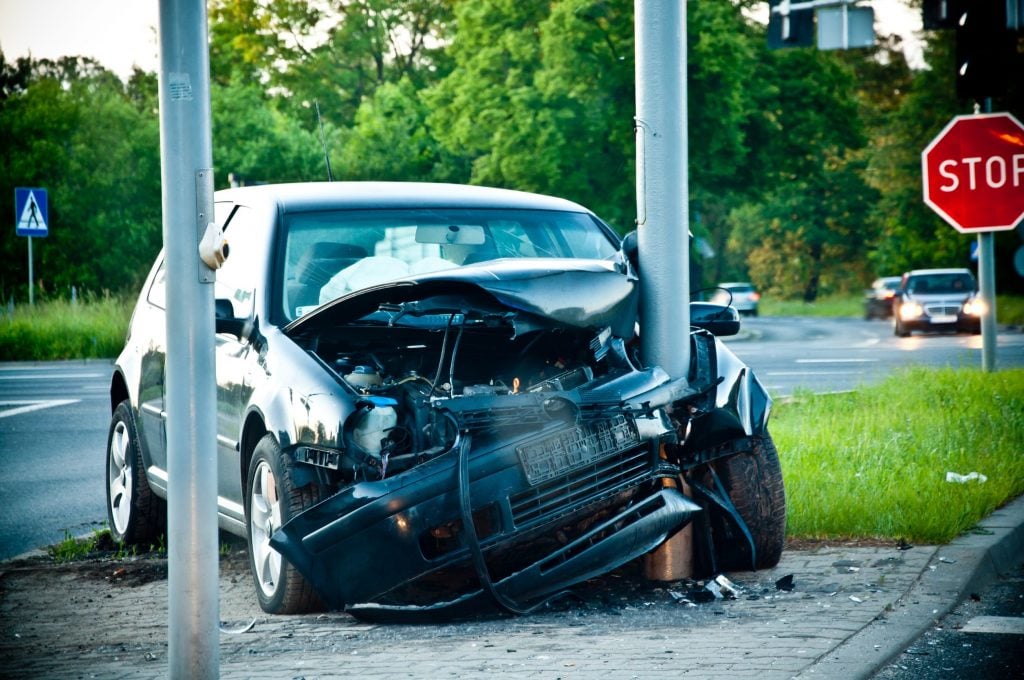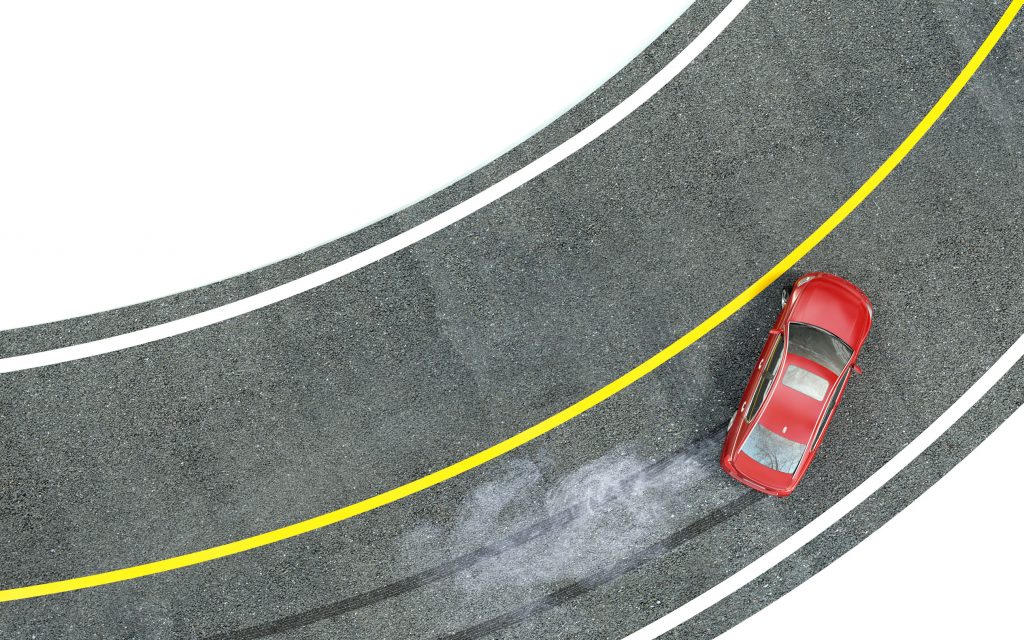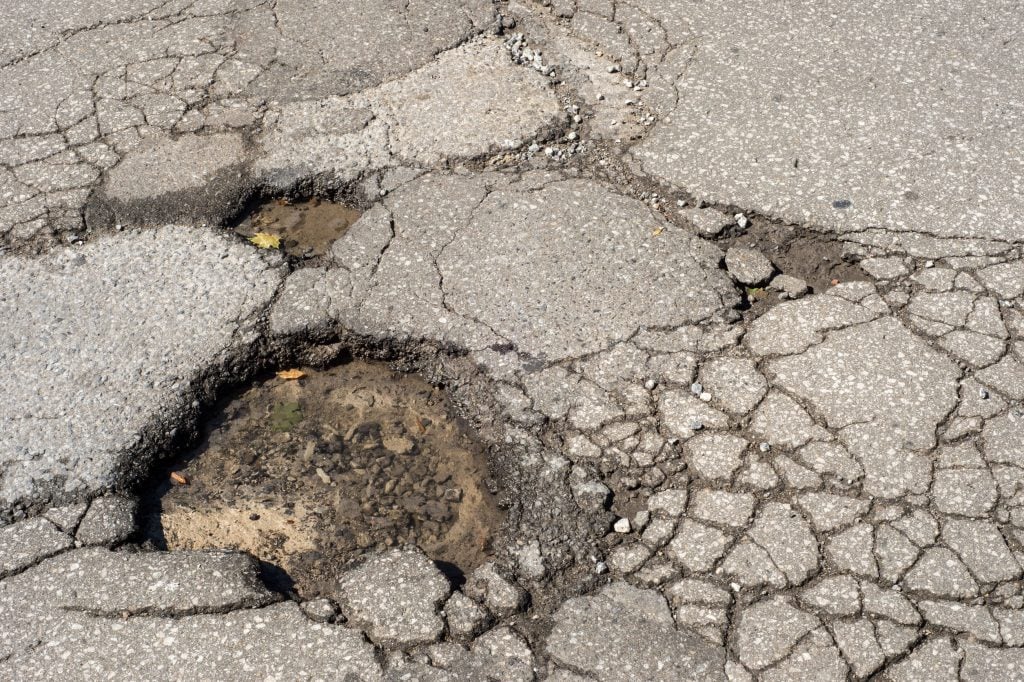
When most people think of car accidents, they think about collisions between two or more vehicles. In reality, though, single vehicle accidents are more common than you might expect. In fact, a study by the Insurance Institute for Highway Safety (IIHS) found that of the 304 fatal car accidents in Nevada in 2019, 151 were single car accidents—just shy of 50% of all deadly crashes that year.
Single vehicle crashes can be caused by a variety of factors. If you’ve been injured in a crash involving only your vehicle, determining who or what caused your accident can mean the difference between receiving compensation for damage to your car and your medical bills and having to shoulder the responsibility of these costs on your own. Learn more about this topic from the Las Vegas personal injury lawyers at ER Injury Attorneys.
Single Car Accidents Defined
Simply put, a single vehicle accident is any car, truck, or motorcycle accident that involves only one vehicle. For example, if a speeding driver loses control of their car and hits a tree or utility pole, this would be considered a single car accident. That being said, just because a car accident involves only one vehicle doesn’t necessarily mean that the driver is automatically at fault—or that another person or entity didn’t contribute to the crash.
Do You Have to Report a Single Vehicle Accident to Police?
After any type of traffic accident, your first priority should be safety. If you or a passenger needs medical attention or is trapped inside your vehicle, call 911 immediately. If your car is blocking traffic or creating a road hazard and you cannot move it safely, at the very least you should contact a tow truck to clear the roadway.
Accidents That Result in Injury or Death
While a minor car accident may not require police presence on the scene, you are still legally required to report a single car accident to Nevada law enforcement. If anyone sustains bodily injury or is killed in the accident, police should be summoned to the scene to investigate and take a report. This is especially important if the single-vehicle accident involved a bicyclist, pedestrian, or passenger.
Accidents That Result in Third-Party Property Damage
Under Nevada Revised Statutes (N.R.S.) 484E.040 and 484E.050, if you are in a single vehicle accident which causes damage to someone else’s unattended property (i.e., you hit someone’s mailbox), you are required to leave a note in a conspicuous place containing your name and address in addition to the owner of the vehicle you were driving (if someone other than yourself). You must also report the accident to the nearest police station or the Nevada Highway Patrol.
Accidents That Don’t Result in Injury or Property Damage
If you are in a single vehicle accident in which no one is injured and no property other than your own is damaged, you don’t need to call police officers to the scene of the accident. However, you do still need to fill out an accident report, called an SR-1 (Report of Traffic Crash). This form can be filled out online, in person at a police station, or by calling your local police station. All SR-1s must be completed and filed within 10 days of a traffic accident.
A note on reporting single vehicle accidents: If you have reason to believe that someone else was responsible for your accident and you sustained bodily injuries or significant property damage to your vehicle, you should request an investigation by law enforcement to document who or what you believe contributed to your accident.
Single Car Accidents and Liability
In most cases, liability for a single vehicle accident falls on the driver of the vehicle. However, in a minority of cases, someone else may be held legally responsible for causing the accident. Let’s take a look at some of the people or entities who could be liable for a single car crash.

The Motorist
The driver in a single vehicle wreck is usually responsible for the accident. Common driver causes of single vehicle accidents include:
- Speeding or traveling too fast for conditions
- Driving under the influence of drugs or alcohol
- Drowsy driving
- Distracted driving
- Failure to obey driving laws and/or traffic signals
More rarely, a passenger in a single vehicle accident may be liable for the accident if it can be proven that they distracted the driver, impeded the driver’s field of view, or put their hands on the wheel prior to the crash.
Another Motorist
Sometimes, another car, motorbike, or large truck can contribute to or cause a single vehicle accident without being directly involved in the collision. Here are some examples in which another driver may be found to be at fault for a single car crash:
- A distracted or impaired driver crosses over the median, forcing you to swerve out of the way to avoid being hit. You hit a guardrail instead, while the negligent driver drives away unscathed.
- Unsecured cargo in a semi-truck or moving van falls from the vehicle into the roadway, either hitting your vehicle directly or causing you to swerve out of the way of the obstruction.
- Another driver, bicyclist, or pedestrian violates traffic laws or acts in a careless or reckless manner which directly causes you to lose control of your vehicle or strike an roadside object. This could include someone driving too closely behind you or appearing suddenly in front of you and forcing you to take evasive action to avoid being hit.
Product Defects
Other times, a vehicle manufacturer may be to blame, or at least partially to blame, for a single vehicle accident. Defects in the design or manufacture of a vehicle or one of its parts may lead to an accident in the following ways:
- Defective or improperly installed brakes, lights, engines, or airbags can directly cause a single vehicle accident.
- Design defects may also contribute to an accident involving just one vehicle. For example, the poor design of certain SUVs can lead to rollover accidents and wrongful death due to roof crush injuries.
- An engine that overheats may cause a vehicle to catch fire, which can ultimately cause the driver to crash or suffer burn injuries.
The Government

When a traffic accident is caused by problems with the road itself, whoever is responsible for maintaining that roadway may be held liable for your injuries. In many cases, this may be the government itself. Although suing the government for a road defect can be difficult and complex, it is possible with the help of an experienced personal injury attorney. The government (or another entity) may be responsible for your accident if:
- A pothole, seam, or construction debris that wasn’t immediately visible caused you to lose control of your vehicle and crash.
- Poor roadway design or insufficient maintenance contributed to your single vehicle accident.
- A lack of signage (or obscured signage) did not adequately warn you of upcoming road hazards
- The entity responsible for clearing roadways of ice or snow failed to do so during inclement weather.
A note on liability: On some occasions, a driver may do nothing wrong but still end up in an accident due to circumstances outside anyone’s control, such as inclement weather or wildlife in the roadway. Although you most likely won’t be able to sue for these accidents, you may be able to file an accident claim through your insurance using collision or comprehensive coverage.
Single Vehicle Accident Not Your Fault? We Can Help
If you or a loved one has been injured in a single car accident through no fault of your own, you are not alone. Our attorneys are available around the clock to help injured victims who need legal assistance after a crash. If you suspect that your accident was the result of another person or entity’s negligence or recklessness, you could be entitled to significant compensation for your medical bills, property damage, lost wages, pain, and suffering.
Find out if you have a case by reaching out to ER Injury Attorneys. Our phone lines are open 24/7 at 702-878-7878. You can also connect with one of our LiveChat representatives online now, or send us a message with your case details to be forwarded directly to our law office. Consultations are free, and we charge no fees unless we reach a verdict or settlement on your behalf. Contact us today!
